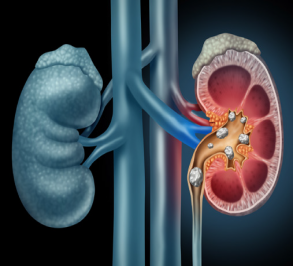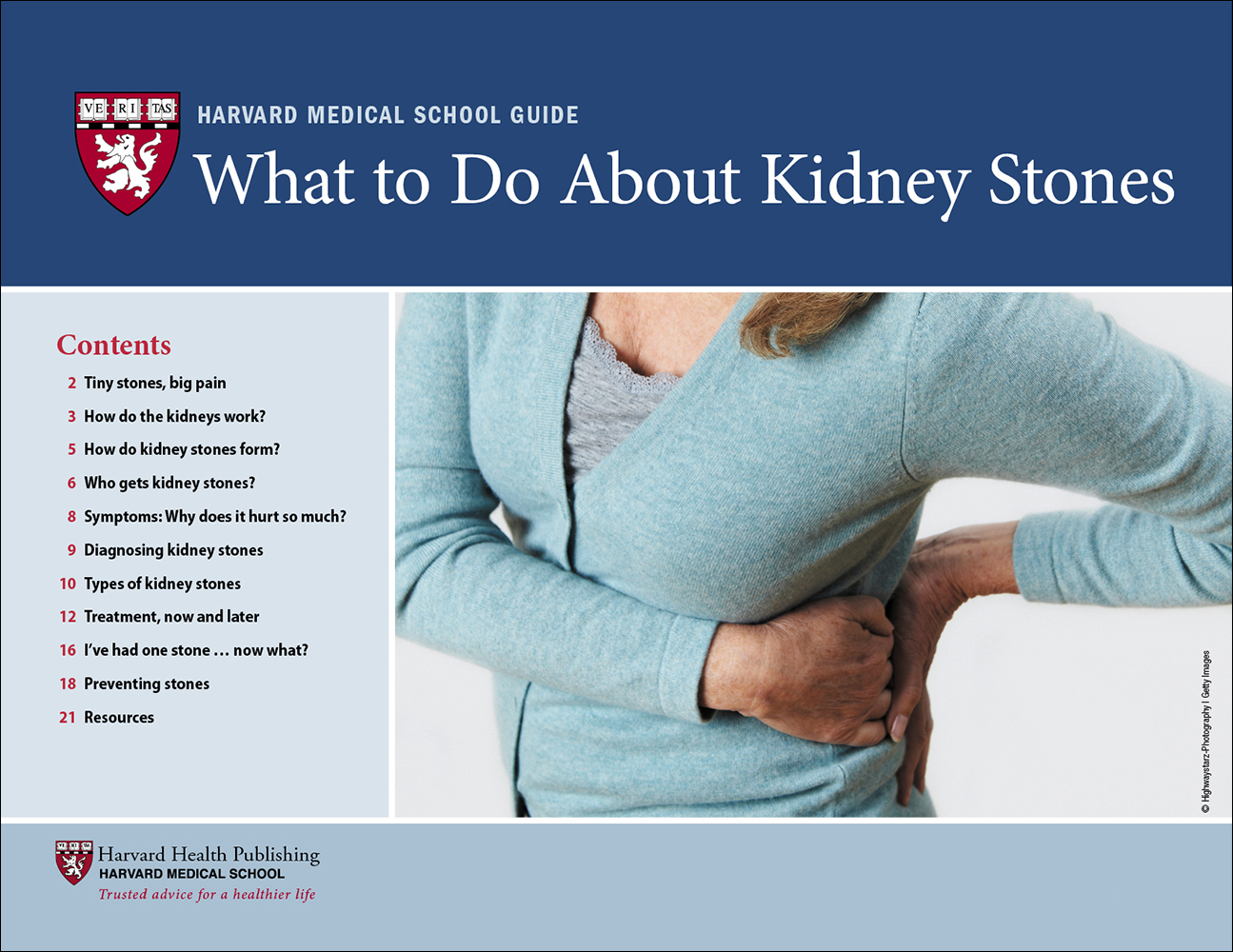
How does Ozempic work? Understanding GLP-1s for diabetes, weight loss, and beyond

Zinc: What it does for the body, and the best food sources

Respiratory health harms often follow flooding: Taking these steps can help

Tips to leverage neuroplasticity to maintain cognitive fitness as you age

Can white noise really help you sleep better?

Celiac disease: Exploring four myths

What is prostatitis and how is it treated?

What is Cushing syndrome?

Exercises to relieve joint pain

Think your child has ADHD? What your pediatrician can do


What to Do About Kidney Stones
How and why do kidney stones form? If you need tests or treatment for a stone, what’s involved and what are the risks? Who is likely to develop a first (or second or third) kidney stone, and how can it be prevented? What to Do About Kidney Stones will answer all of these questions. We’ll also bust some myths about why kidney stones hurt so much and how to reduce your risk.
Other Product Information
Your kidneys are an amazing blood purifier! Each one has about one million tiny filtering units that help whisk toxins out of your body to help keep you healthy.
But for more than 600,000 people each year, [something goes painfully wrong. Tiny crystals can build up inside the kidneys to create a small stone that cause excruciating pain you wouldn’t wish on anyone.
What can you do to help prevent this dire situation? How can you relieve a kidney stone attack?
The doctors at the legendary Harvard Medical School have the rock-solid answers you need in a online guide called What to Do About Kidney Stones. For example:
- What about treatment? Find out what at-home and medical treatments doctors recommend to help control the intense pain—plus what doctors can do if a stubborn stone doesn’t pass.
- How can I prevent kidney stones? Drink enough fluids every day…eat a heart-healthy diet (that’s also good for your kidneys) …and, depending on blood tests, take stone-preventing medication. Get all the details in this informative resource.
- Does it matter what KIND of kidney stone I have? Yes! Knowing what your stone is made of can help you avoid a repeat incident. Harvard Medical School docs show you how.
What to Do About Kidney Stones is the convenient, one-stop online source for the answers you need to claim victory over this painful condition.
Prepared by the editors of Harvard Health Publishing in consultation with Peter Steinberg, MD Assistant Professor of Surgery, Harvard Medical School Director of Endourology and Kidney Stone Management, Beth Israel Deaconess Medical Center. 21 Pages. (2018)
About Harvard Medical School Guides
Harvard Medical School Guides delivers compact, practical information on important health concerns. These publications are smaller in scope than our Special Health Reports, but they are written in the same clear, easy-to-understand language, and they provide the authoritative health advice you expect from Harvard Health Publishing.
Diagnosing kidney stones
It’s likely that your pain will quickly get your attention and send you to the doctor or a hospital emergency department. They’ll ask about your medical history, which may affect your risk of kidney stones. You’ll also be asked about the type of pain you’re having, where it is, and how long you’ve had it. You’ll be asked to give a urine sample and likely have blood drawn as well. Often, imaging tests will be used to confirm if you have a kidney stone or not.
The doctor will want to rule out other conditions that can cause similar signs and symptoms. These conditions include:
- urinary tract infection (though it is possible to have both an infection
- and a kidney stone at the same time)
- diverticulitis
- appendicitis
- pneumonia
- gallstones
- herniated disc in the lower back
- ovarian cyst or ectopic pregnancy
- shingles
- pancreatitis
- rib fracture.
If the pain is caused by a kidney stone, people tend to writhe and move, trying to find a comfortable position. In contrast, people with abdominal pain from other conditions (such as appendicitis) tend to stay motionless.
- Tiny stones, big pain
- How do the kidneys work?
- How do kidney stones form?
- Who gets kidney stones?
- Symptoms: Why does it hurt so much?
- Diagnosing kidney stones
- Types of kidney stones
- Treatment, now and later
- I’ve had one stone … now what?
- Preventing stones
- Resources

How does Ozempic work? Understanding GLP-1s for diabetes, weight loss, and beyond

Zinc: What it does for the body, and the best food sources

Respiratory health harms often follow flooding: Taking these steps can help

Tips to leverage neuroplasticity to maintain cognitive fitness as you age

Can white noise really help you sleep better?

Celiac disease: Exploring four myths

What is prostatitis and how is it treated?

What is Cushing syndrome?

Exercises to relieve joint pain

Think your child has ADHD? What your pediatrician can do
Free Healthbeat Signup
Get the latest in health news delivered to your inbox!
Sign Up

